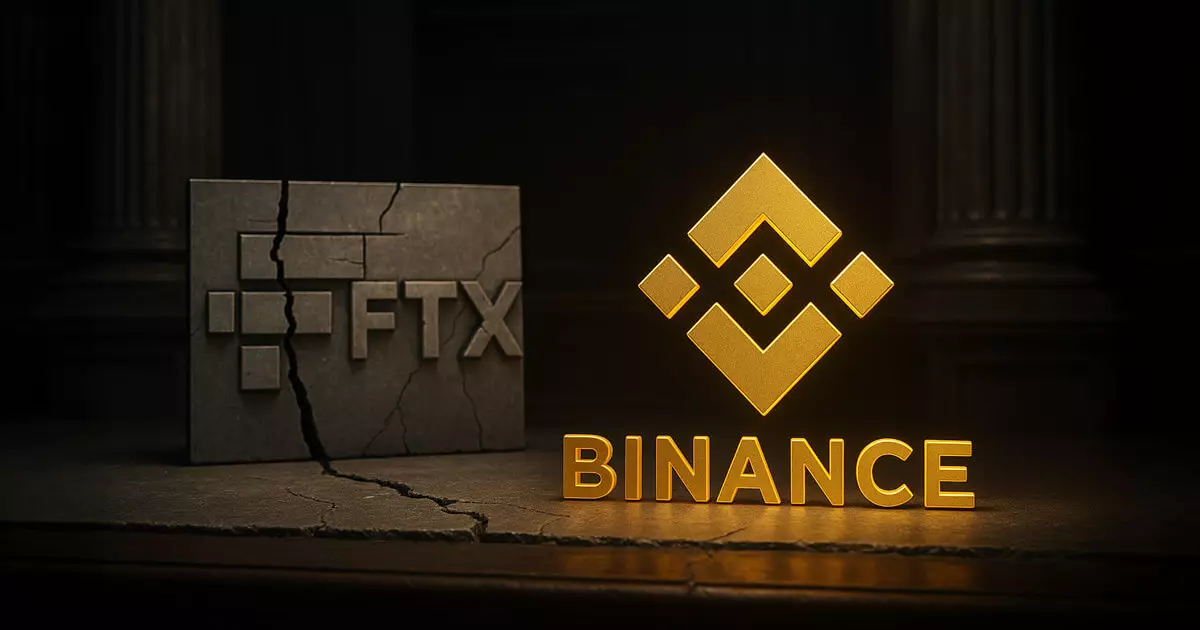The ongoing legal battle between Binance and FTX has become a high-stakes drama, with Binance now asking a US court to dismiss FTX’s $1.76 billion lawsuit. This situation raises fundamental questions about jurisdiction, accountability, and the very fabric of international business dealings in the cryptocurrency realm. Binance’s assertion that the court lacks authority over foreign entities is not just a mere technicality; it strikes at the root of how we understand the governance of digital assets across borders. If the allegations are indeed as baseless as Binance claims, what does it mean for accountability in the cryptocurrency market? The idea that foreign companies could escape scrutiny under US laws could create a race-to-the-bottom scenario where regulatory compliance means nothing.
Undermining Insolvency: A Fragile Foundation
In its defense, Binance argues that FTX’s claims about its insolvency are built on shaky assumptions. The notion that a company can be declared insolvent at one moment and then somehow have “value left to be destroyed” just a year later is nonsensical. This bizarre legal reasoning exposes a troubling vulnerability in FTX’s case. If companies can be pulled into prolonged litigation under such flimsy theories, what safeguards do we have against frivolous lawsuits? It begins to feel like a tactic instead of legitimate legal recourse. As such, Binance’s refusal to concede to FTX’s narrative is not merely defensive; it represents a vital push for a more rational approach to assessing the claims of insolvency in this complex ecosystem.
The Impact of Social Media: More Than Just Words
Another critical aspect of Binance’s defense pertains to the allegations against Changpeng Zhao. FTX claims Zhao incited a bank run through social media, but Binance argues that this theory is exaggerated. The portrayal that tweets can have a life-and-death influence on businesses presents an unsettling paradigm. If Zhao’s social media presence is genuinely being scrutinized to such an extent, we open a Pandora’s box that could lead to censorship and self-censorship among business leaders. The legal building blocks of future cases might very well rely on the whims of public perception rather than the actual impact of those statements. Should social media communications be treated as actionable threats, we risk silencing honest discourse about market conditions and expectations.
Market Dynamics: A Risky Environment
Binance maintains that its decision to liquidate FTX’s FTT tokens in 2022 stemmed from sound market risk assessment rather than malicious intent. This framing is essential for understanding the broader crypto market, which is rife with uncertainties and complexities. The suggestion that Binance acted from a place of self-preservation in a tumultuous market highlights an inherent tension between survival and ethical responsibility. If Binance’s actions were purely defensive, then the court must consider the broader implications of risk management within the crypto sector. A failure to account for these nuances could result in a stifling legal environment that punishes firms for simply navigating a volatile marketplace.
The Bigger Picture: What’s at Stake?
As this legal saga unfolds, one must consider the ramifications beyond the courtroom. Binance and FTX are not just isolated players; they are part of a shifting global narrative surrounding cryptocurrency. The intertwined fates of these two behemoths could dictate the future regulatory landscape for digital currencies. If Binance’s defense prevails, it could set a precedent that underscores the importance of legal frameworks that are adaptive to international business practices. Conversely, a ruling favoring FTX might embolden malicious litigations and deter investment in an already skeptical market. The stakes have never been higher, and the implications of this case will ripple far beyond the immediate parties involved.


Leave a Reply